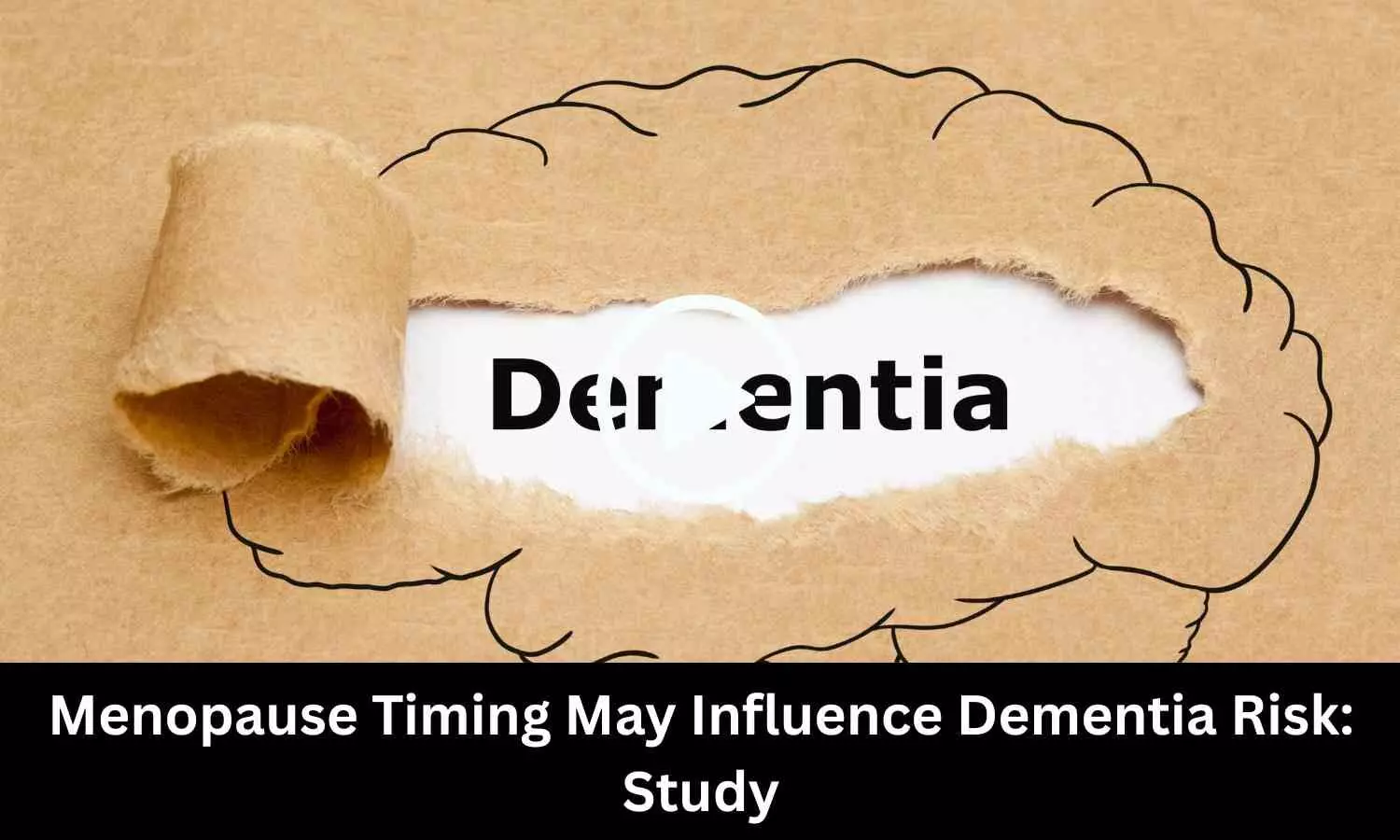Menopause Timing May Influence Dementia Risk: Study Finds
- byDoctor News Daily Team
- 17 October, 2025
- 0 Comments
- 0 Mins

Enteringmenopauseat an earlier age is associated with an increased risk of developingdementia, according to a new international study published in theJournal of Alzheimer’s Disease.The same study also suggests that hormone replacement therapy (HRT) after menopause may help reduce this risk, offering potential insights into how reproductive health influencesbrain aging. The research, conducted in collaboration with Boston University, examined data from 1,329 cognitively healthy women enrolled in the Framingham Heart Study—the world’s longest-running longitudinal cohort study. Researchers investigated various reproductive factors, including age at first menstruation, age of menopause onset, overall reproductive lifespan, blood estrogen levels, and use of post-menopausal HRT. These factors were then analysed in relation to cognitive test performance, MRI markers of brain aging, and the future risk of dementia. The study also found that greater estrogen exposure throughout a woman’s life was linked with enhanced cognitive performance and larger brain volumes. Specifically, having more children, higher blood estrogen levels, and older age at menopause were associated with better performance on tests assessing visuospatial skills—the ability to process and manipulate visual and spatial information. “We found that entering menopause at an earlier age appears to be associated with an increased risk of dementia, while post-menopause hormone replacement therapy appears to be associated with a lower risk of dementia,” said Professor Emer McGrath, lead author and Associate Professor in Medicine at University of Galway. “Although our results suggest positive cognitive benefits of greater lifetime estrogen exposure, they do require further validation.” “When we explored signs of brain ageing on MRI brain scans, we also found that having more children was associated with larger brain volumes, including in the areas we tend to see shrinkage in Alzheimer’s disease,” Professor McGrath added. With women accounting for nearly two-thirds of all Alzheimer’s disease cases, the study underscores the need for more research into sex-specific factors that may contribute to dementia risk. The findings highlight the potential role of reproductive and hormonal health in protecting against cognitive decline. Reference:McGrath ER, Scott MR, Buckley RF, et al. The association between reproductive factors and neurocognitive and neuroimaging markers of brain aging. Journal of Alzheimer’s Disease. 2025;107(4):1594-1604. doi:10.1177/13872877251372430
Disclaimer: This website is designed for healthcare professionals and serves solely for informational purposes.
The content provided should not be interpreted as medical advice, diagnosis, treatment recommendations, prescriptions, or endorsements of specific medical practices. It is not a replacement for professional medical consultation or the expertise of a licensed healthcare provider.
Given the ever-evolving nature of medical science, we strive to keep our information accurate and up to date. However, we do not guarantee the completeness or accuracy of the content.
If you come across any inconsistencies, please reach out to us at
admin@doctornewsdaily.com.
We do not support or endorse medical opinions, treatments, or recommendations that contradict the advice of qualified healthcare professionals.
By using this website, you agree to our
Terms of Use,
Privacy Policy, and
Advertisement Policy.
For further details, please review our
Full Disclaimer.
Recent News
Merck Keytruda wins European Commission nod for lo...
- 30 October, 2025
UP NEET 2025 round 3 allotment results postponed
- 30 October, 2025
Achin Gupta to succeed Umang Vohra as Cipla MD, GC...
- 30 October, 2025
Mumbai shocker: KEM Hospital doctor stabbed by col...
- 30 October, 2025
Daily Newsletter
Get all the top stories from Blogs to keep track.


0 Comments
Post a comment
No comments yet. Be the first to comment!